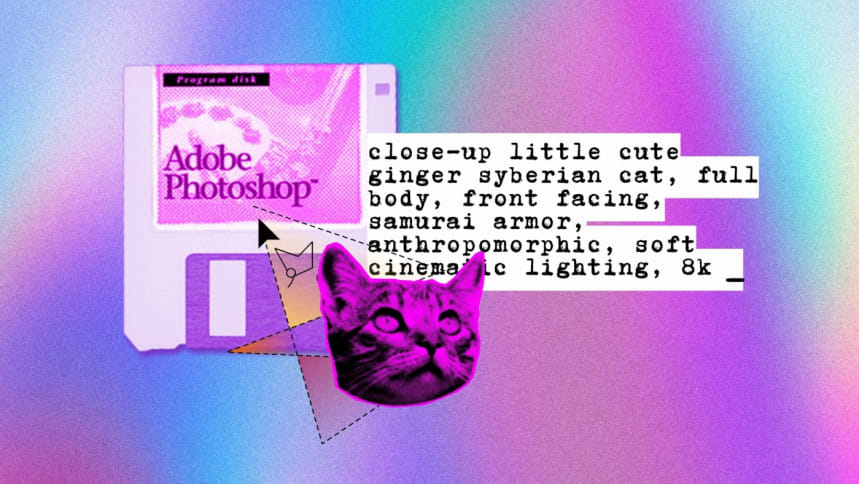Adobe adds Midjourney-like generative AI tool in Photoshop

Adobe, the leading software company renowned for its Photoshop application, announced the integration of generative artificial intelligence (AI) into the Photoshop software. This development aims to make Photoshop more accessible to untrained users by allowing them to create images from simple text prompts, similar to AI image creation technologies like Midjourney and DALL-E.
Photoshop has been celebrated for its robust tools capable of both photo editing and graphic design. However, mastering its intricate functionalities often required substantial skill and training. With the inclusion of generative AI, Adobe is revolutionising the creative landscape by simplifying the image creation process.
During a demo presented to NBC News, Maria Yap, Adobe's Vice President of Digital Imaging, effortlessly placed a dog's portrait into an expansive background using a mere four-word prompt, "spring trees with sunshine." What previously entailed hours of editing was now accomplished within minutes, showcasing the time-saving potential of AI-assisted editing.
While the integration of generative AI into Photoshop presents exciting possibilities, concerns have arisen regarding its potential effects on the job market. Generative AI, defined as AI capable of creating text, images, and video, has sparked discussions about job displacement and transformations across various industries.
To address such concerns, Adobe is implementing safeguards alongside the new version of Photoshop. One notable addition is a free, open-source tool called Content Credentials, which enables creators to attach metadata labels to verify whether an image has been altered by AI. This initiative aligns with the broader Content Authenticity Initiative (CAI), a coalition established by Adobe in 2019, comprising over 1,000 companies focused on fostering transparency and trust in online photos and videos. Members of CAI include Microsoft, Stability AI, Synthesia, and other leading AI and tech companies.
Moreover, Adobe is actively addressing ethical and legal worries expressed by artists. By training its AI solely on licensed stock imagery, the company aims to prevent unauthorised use of artists' work. Additionally, Adobe plans to compensate artists who contribute their work to train its AI. This approach distinguishes Adobe from certain AI art companies that have faced criticism and lawsuits for allegedly appropriating artists' creations without permission, as their AI models are trained on unlicensed internet images.

 For all latest news, follow The Daily Star's Google News channel.
For all latest news, follow The Daily Star's Google News channel. 








Comments